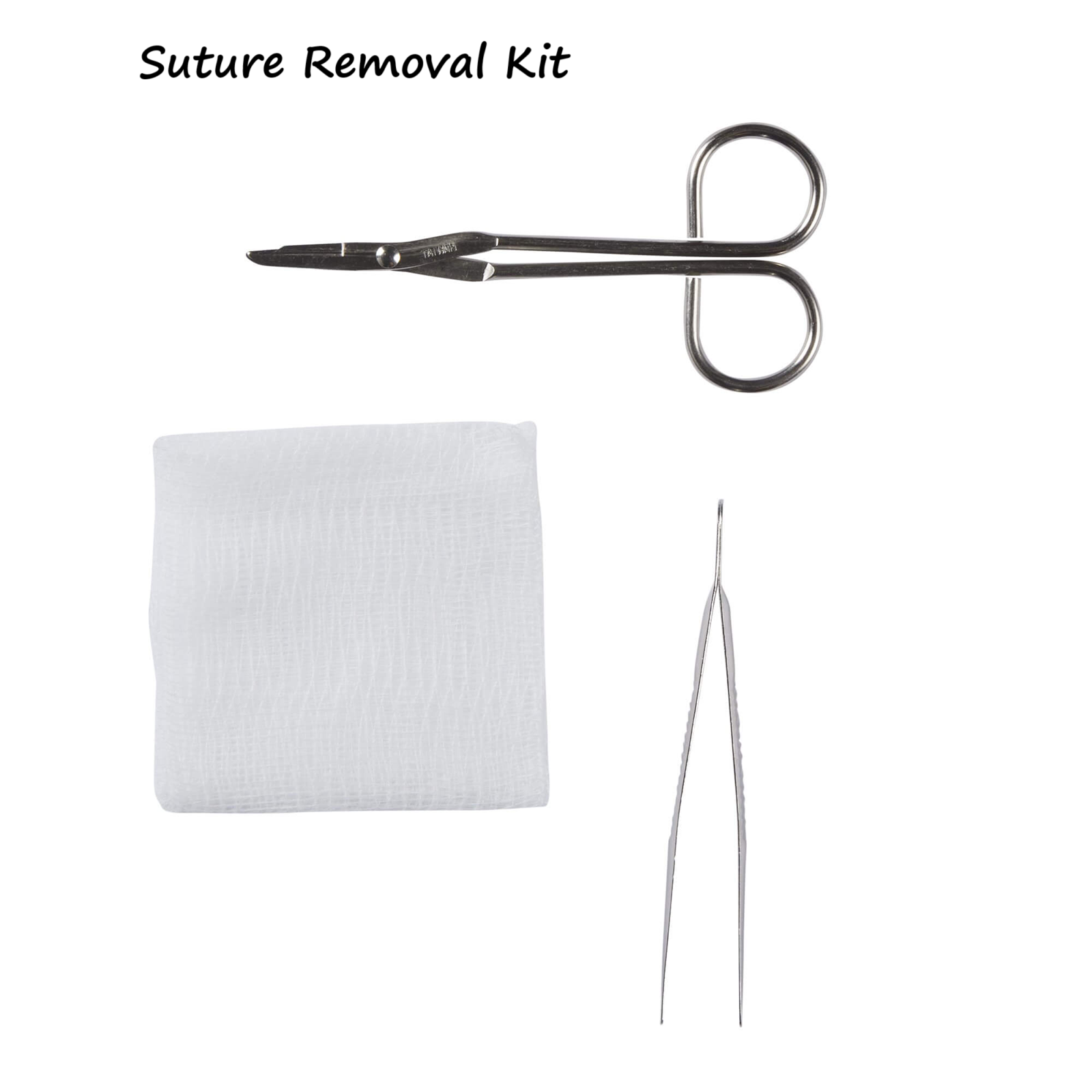A suture removal kit is a medical toolset used to safely and effectively remove stitches after a wound has healed. Whether in a hospital, clinic, or home care setting, using the right instruments ensures minimal discomfort and reduces the risk of infection.
What’s Inside a Suture Removal Kit?
A standard suture removal kit typically includes:
- Suture Removal Scissors – Specially designed with a curved, blunt tip to safely cut sutures without damaging the skin.
- Forceps/Tweezers – Used to grasp the sutures for easy removal.
- Gauze Pads – To clean the wound and absorb any residual fluids.
- Alcohol Prep Pads – To disinfect the area before and after removal.
- Gloves – Sterile gloves to ensure hygienic handling.
Some kits may also contain antiseptic ointments and bandages for post-removal wound care.
When Are Sutures Removed?
The timing for suture removal depends on the wound location and type:
- Face – 5 to 7 days
- Scalp – 7 to 10 days
- Arms & Hands – 10 to 14 days
- Legs, Chest, and Back – 10 to 14 days
- Joints (Knees, Elbows, etc.) – 14 to 21 days
A doctor or nurse typically decides the best time based on healing progress.
How to Use a Suture Removal Kit?
- Wash Hands & Disinfect the Area – Use alcohol wipes or an antiseptic solution.
- Grip the Suture – Use tweezers to gently hold the stitch.
- Cut the Suture – Place the scissors under the loop and cut near the knot.
- Pull Out the Stitch – Use tweezers to slowly remove the thread.
- Clean and Cover – Wipe the area with a gauze pad and apply a bandage if needed.
Tip: Avoid pulling the uncut suture through the skin, as it may carry bacteria and cause infection.
Benefits of a Suture Removal Kit
✅ Ensures Safe Removal – Prevents unnecessary skin damage.
✅ Hygienic & Sterile – Reduces the risk of infection.
✅ Convenient & Portable – Ideal for hospitals, clinics, and home use.
✅ Cost-Effective – More affordable than visiting a healthcare provider for minor removals.
Conclusion
A suture removal kit is an essential tool for the safe and hygienic removal of stitches once a wound has healed. Whether used by healthcare professionals or individuals at home (under guidance), having the right tools ensures a smooth and painless suture removal process. Always consult a medical professional if there are any signs of infection, redness, or delayed healing before removing sutures.



Leave a Reply